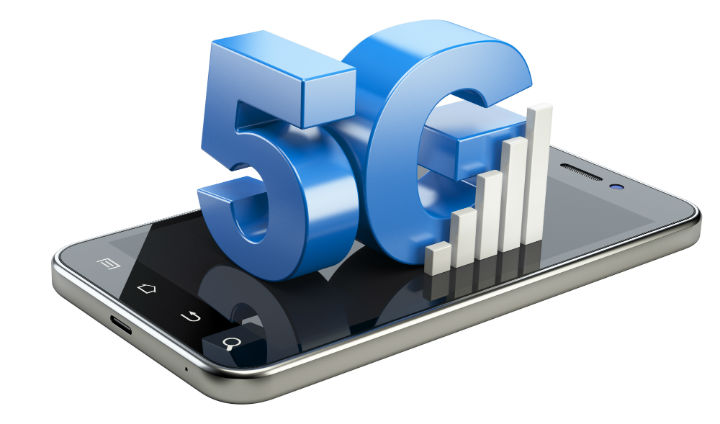It’s coming. 5G is the next generation of wireless internet and the one thing we know about it is that it will be fast. We’re talking about 100Mbps minimum, with gigabit speeds for many users outside of large metropolitan areas. We’re talking so fast that you might just be able to give up wired internet, that fast.
For those people who want to say that cellular internet could never replace wired internet for this reason or that reason, remember that a decade ago people said the same thing about land lines. They said that cell service was too expensive, that it wouldn’t be cost-effective for a large volume of calls, that it simply wouldn’t hold up well enough to replace land line service. Of course those objections seem pretty foolish today because land line service is shrinking almost by the day and cell service basically is phone service. The same could happen with internet. Wired internet is very expensive to build out and while today it has faster speeds and more capacity, there’s no reason to think that will last forever. With 5G, you could rid yourself of one more bill and just pay one internet provider for both cell and home.
Of course, AT&T wants to be that provider. They’re moving aggressively on 5G and with a single purchase they look to be able to cover 95% of the US with 5G. Keep in mind they aren’t done, either. 5G is just starting and by the time you are actually ready to use it they could become the largest provider of 5G services in the world.
What does 5G bring to the table?
You mean besides insane speed? Good question. 5G doesn’t just bring speed to the table. 5G is the first mobile standard that is really designed to compete with wired internet. 4G/LTE was designed at a time, not that long ago, before we depended on our phones for everything. Remember before 4G, when you got emails and occasionally read the news on your phone? Those were the days. 4G brought the promise of mobile internet that was as reliable as wired internet, but as home internet speeds climbed from the 3Mbps that was typical in the mid-2000s to the 50+Mbps that’s typical today, 4G started to lag. For most people on most devices, speeds top out at about 25Mbps which is fast enough for a phone but not for a whole house full of users. Not only that, but there’s a cost and capacity issue. To truly get enough data to cover an average home’s 200GB/month appetite, you need to spend so much that it just doesn’t make sense.
5G could change all that. With plentiful amounts of spectrum designed into the system, 5G could deliver 100Mbps per device and that means potentially enough bandwidth for everyone, at least for now.
What does 5G mean for the average person?
5G is a game changer for the millions of people who suffer with bad internet and no choice in the market. If your local internet company doesn’t listen to you, has frequent outages, or has speeds stuck in the last decade, 5G will open your eyes. 5G doesn’t require expensive wiring and that means companies like AT&T will be able to offer high speed internet pretty much everywhere. Just like satellite TV took over rural America in the 2000s, 5G will start a data revolution for people who can’t even stream in HD yet. One antenna placed on the roof and one modem will get real high-speed internet to the whole home, and give people true choice for the first time. I predict that a lot of poorly-performing internet companies will fold when 5G gets mature.
So when will 5G be mature?
That’s the real question of course. 5G is still in the very early stages, about where 4G was in 2004 or 2005. There’s no established standard, no discussion about devices, no timeline for getting it out to people. But that will change, and fast. There’s a huge demand for 5G, whether people know it or not. Just like land line service, people are tired of paying multiple companies for the same service and I predict that just like land line service, wired internet service will wane quickly when 5G gets mature enough and cheap enough. Of course the problem is that I don’t know when that will be. If I had to totally guess, I’d say 2021 or so. I think you’ll see the first devices in 2019 or possibly late 2018, but like the first 4G devices they will be full of compromises… bad on battery, big and heavy, and of course they’ll only work in a few places. But 5G is definitely coming and it won’t be long before those big clunky devices are replaced by the normal sized phones we expect.
In a world…
I imagine a world where all of your information and entertainment needs, no matter on what device or at what size, all come from one provider. Imagine paying one company for phone and internet and having great speed wherever you are. Watching true 4K video on mobile won’t be a problem, and whether you’re on the road, at sea, or at home, your single device and single bill will be the portal to everything you see. That’s the future… easier than today, faster than today, and less expensive than today. Sure, it’s going to take some time to get there, but mark my words it’s coming.





